The Sustainable Wildlife Management (SWM) Programme is a major international initiative that aims to improve the conservation and sustainable use of wildlife in forest, savannah and wetland ecosystems. It is being funded by the European Union with co-funding from the French Facility for Global Environment (FFEM) and the French Development Agency (AFD). The initiative is coordinated by a dynamic consortium of four partners, namely the Food and Agriculture Organization of the United Nations (FAO), the Center for International Forestry Research and World Agroforestry (CIFOR-ICRAF), the French Agricultural Research Centre for International Development (CIRAD) and the Wildlife Conservation Society (WCS).
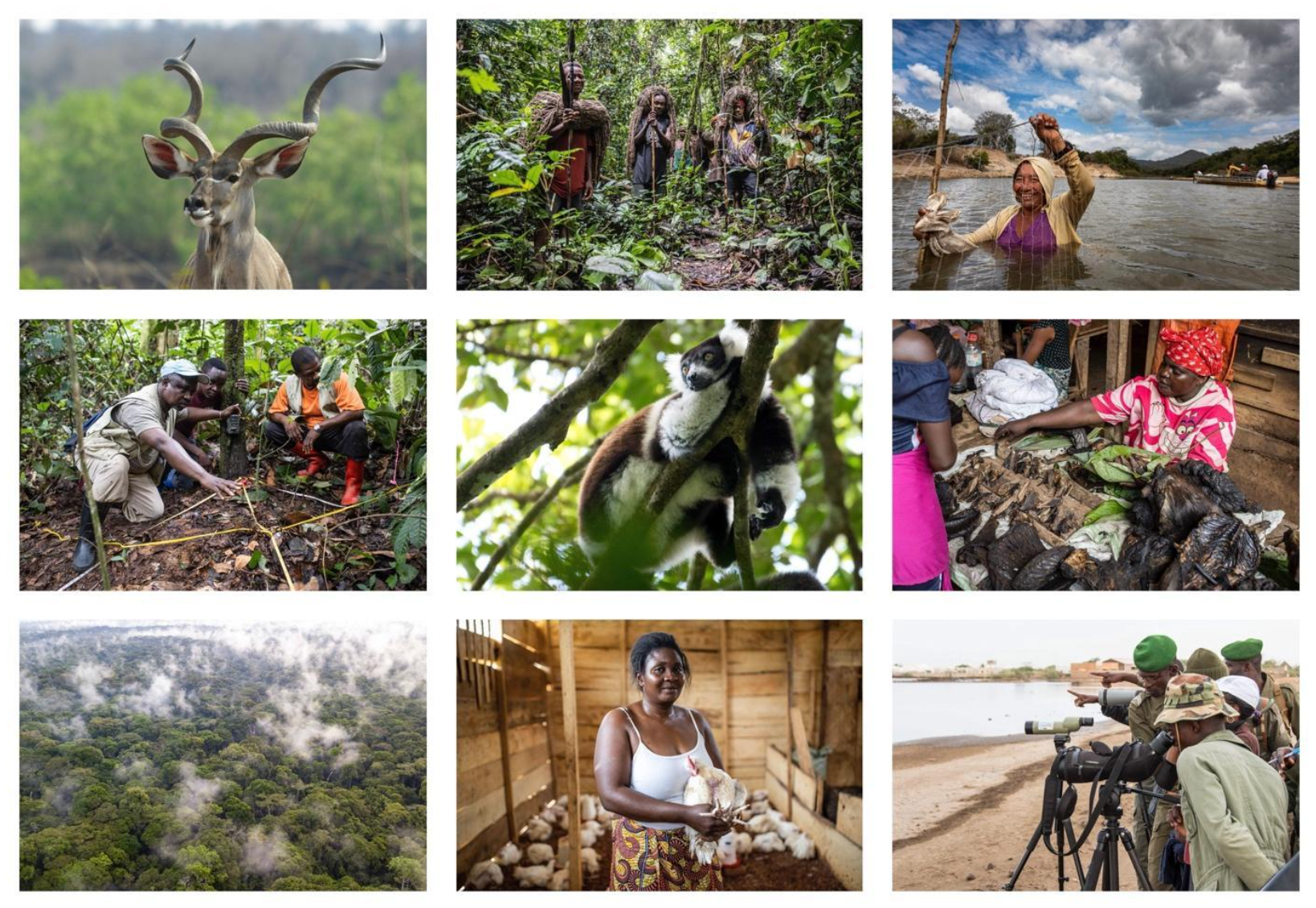
The SWM Programme is developing innovative, collaborative, and scalable new approaches to conserve wild animals and protect ecosystems, whilst at the same time improving the livelihoods of Indigenous Peoples (IPs) and local communities (LCs) who depend on these resources. Projects are being piloted and tested with governments and communities in 16 participating countries, including Botswana, Chad, Democratic Republic of the Congo, Egypt, Gabon, Guyana, Madagascar, Mali, Namibia, Papua New Guinea, Republic of the Congo, Senegal, Sudan, Zambia and Zimbabwe. For more information, click here.
SWM Programme Newsletters: Issue 1, Issue 2, Issue 3, Issue 4, Issue 5, Issue 6, Issue 7, Issue 8, Issue 9
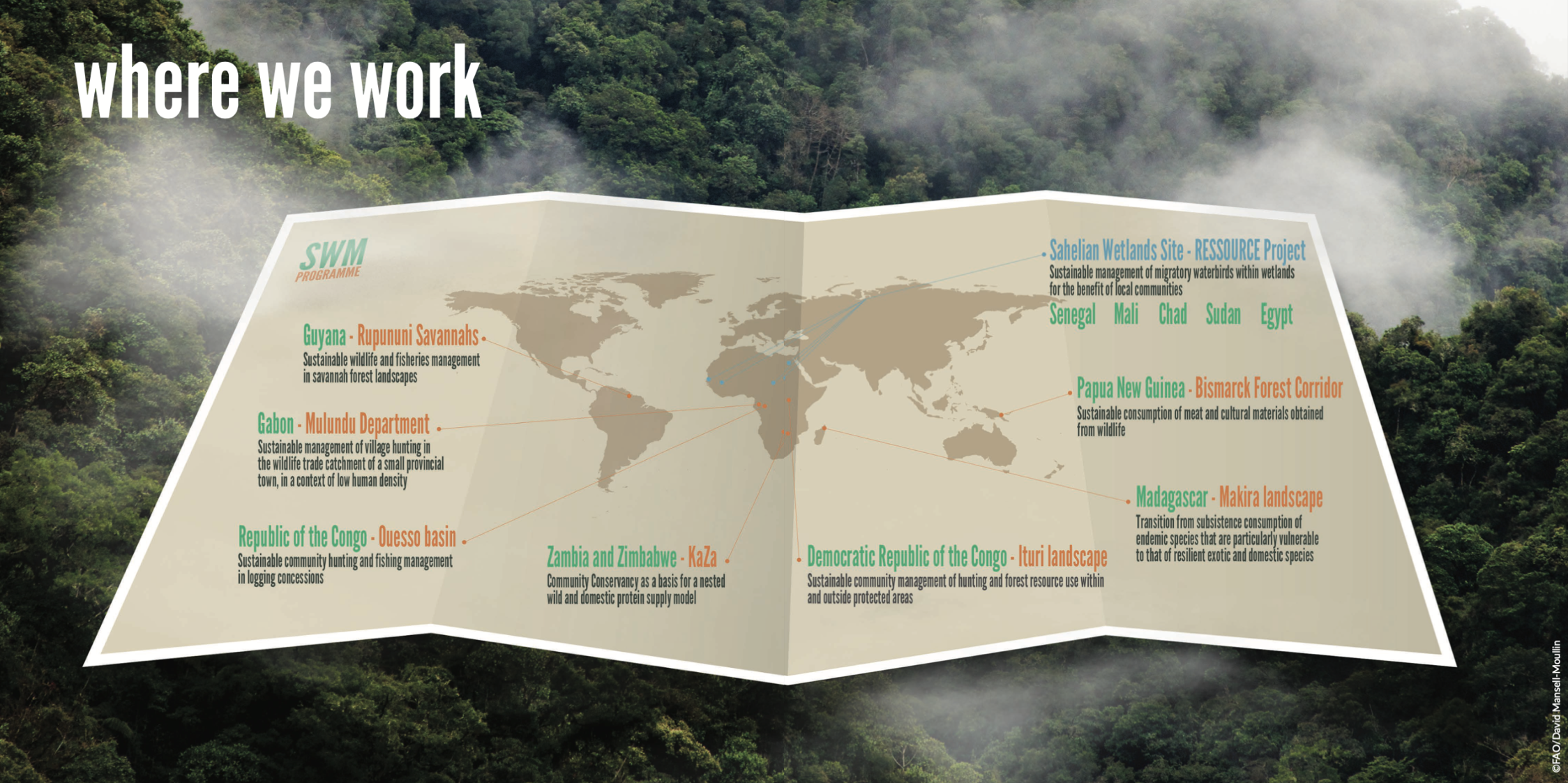
Take a virtual journey around the SWM Programme. This immersive experience brings to life the many activities and solutions being developed by the SWM Programme sites in the Democratic Republic of the Congo. At the same time, see and hear first-hand about some of the photographs taken by the renowned National Geographic photographer Brent Stirton.
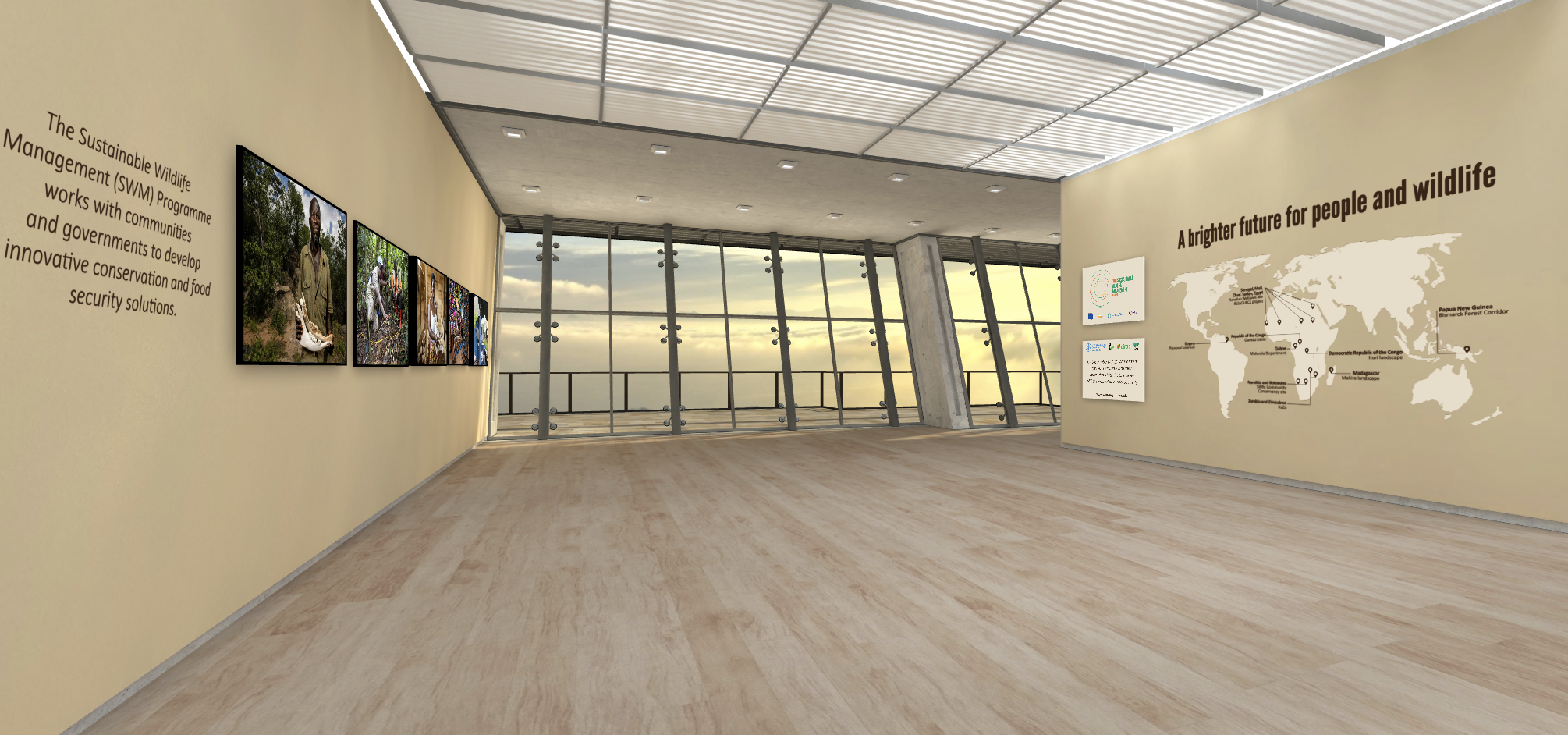
One of the SWM sites is the Okapi Wildlife Reserve (RFO) in the northeastern Democratic Republic of the Congo. The RFO is home to more than 100 species of mammals, including several flagship species of threatened mammals, such as the okapi, forest elephant and the eastern chimpanzee. Indigenous hunter-gatherers represent one-fifth of the population living in the RFO, and their survival depends on the forest. Watch below a video that tells the story of Thomas, who is living in the Ituri forest and is actively involved in the conservation of the Okapi Wildlife Reserve.
The development and enforcement of appropriate legal frameworks are critical to helping conserve wildlife, reduce poverty, and improve food security. The SWM Programme, therefore, developed a Legal Hub that provides a single and easy access point to legal texts that govern the sustainable management of wildlife and associated analysis to increase public awareness and encourage informed and participative law reform processes to improve sustainable wildlife management. To learn more, click here.
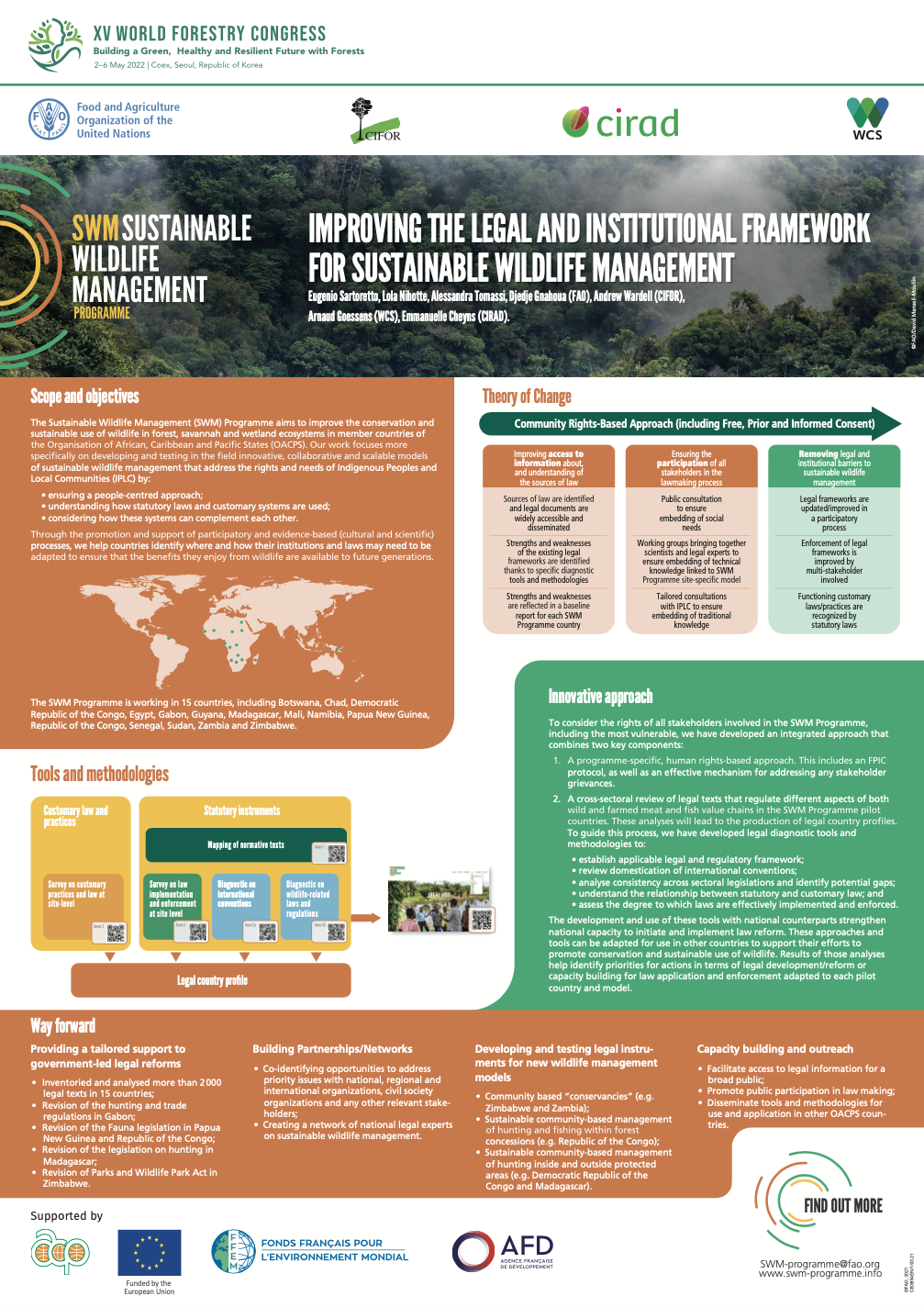
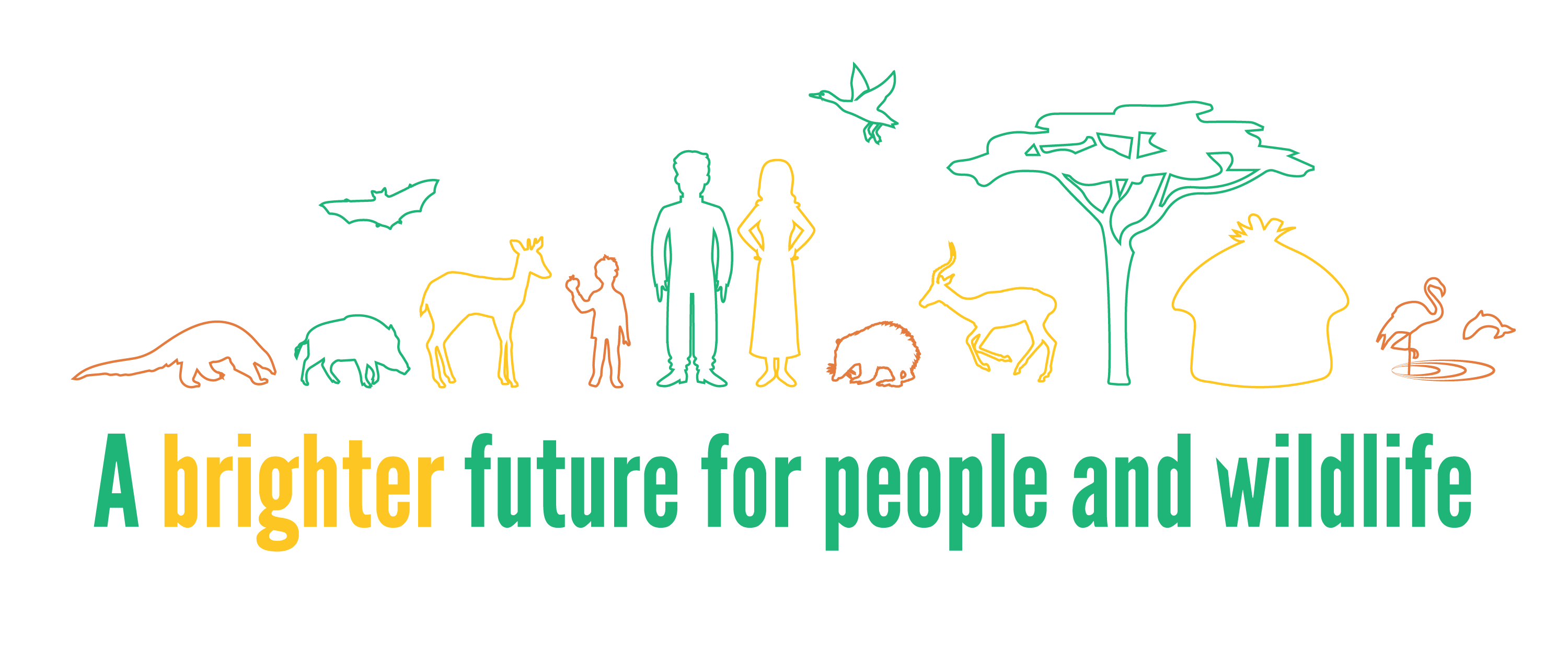

READ MORE
2024